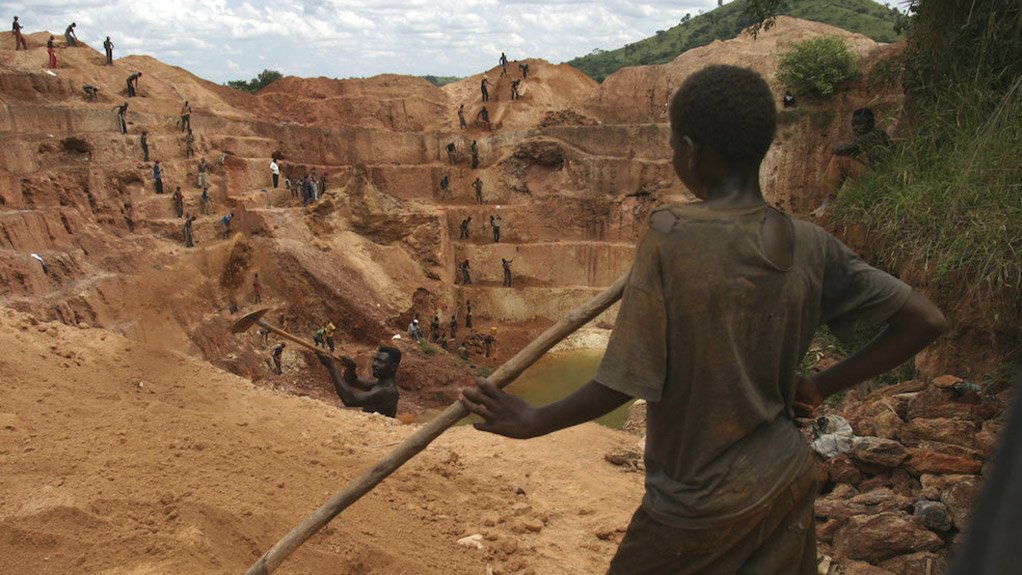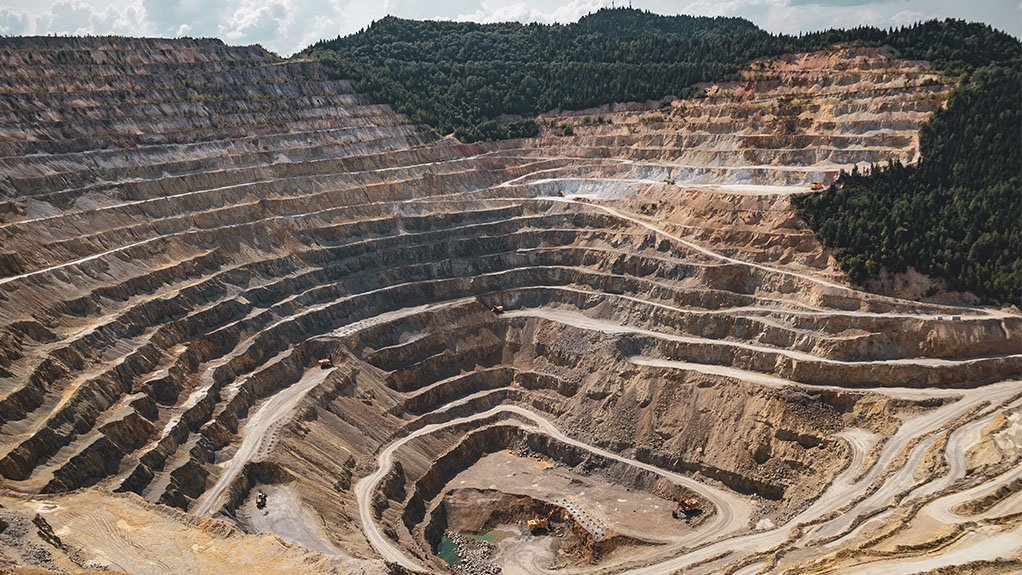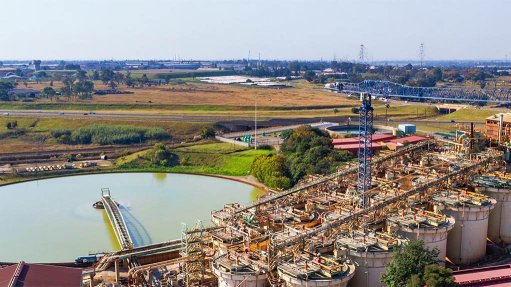Human rights a key issue



MINOR MINERS The use of children and disadvantaged people in the Democratic Republic of Congo mining sector is rampant
KEY REGIONAL COMMODITIES Minerals such as cobalt, tantalum and nickel are increasingly important to global economic development
Modern slavery risk mitigation data and research company Evidencity says although poor governance is an endemic issue in the mining sector of the Democratic Republic of Congo (DRC), the protection of human rights – primarily those pertaining to the use of child labour – is the greatest challenge.
The firm notes that the families that stand to benefit the most from the mining industry are the most exploited.
The private sector in the DRC has an opportunity to play an important role; however, the dominance of corporate interests that place profit over life and liberty, persists, says Evidencity founder and CEO Samuel Logan.
Two possible approaches can mitigate these challenges in the long term, the first of which can be followed through by civil society.
“Multinational organisations, such as the African Union or the United Nations, have a role to play here, though, admittedly, they are limited by sovereignty and the necessity for the DRC to meet them halfway on any initiative,” adds Logan.
He suggests that the multilateral mining industry, prosustainability and human rights institutions – such as global expert groups Alliance for Responsible Mining and the Responsible Sourcing Network – could also offer more effective solutions.
These organisations leverage the additional benefit of private-sector affiliations and a broader global reach, which could draw attention to the areas where children are being exploited in the DRC.
However, when blocked by misaligned interest from public and private sector leaders, this process can be delayed.
The second approach requires engagement with end-use consumers – those who wear and use the products that are directly connected to child labour in the DRC.
End-use consumers could have a greater impact on mitigating the risks by not supporting the companies that create the market demand for critical minerals sourced through practices associated with slavery.
Minerals such as cobalt, tantalum and nickel are increasingly important to global economic development, and Logan says that as consumers raise awareness about human rights violations, public policy will start to reflect actions taken to address these concerns.
“We have already seen a strong incentive to improve the conditions through which these raw materials are sourced this year.”
Logan highlights that Western governments, through transparent legislation, are raising the bar for companies that will rely on critical minerals for their consumer-facing products.
He points out that consumer-driven economics, coupled with public policy, will eventually, albeit slowly, “move the needle” on mitigating risks, even when poor governance, multinational organisations or locally operating companies will not.
Fact Finding
Using its Modern Slavery research product, Evidencity has successfully completed due diligence research on a mining company operating in the DRC that targets specific issues connected to forced labour, child labour, descent-based forced labour and trafficking of workers, besides others.
The Modern Slavery research product enables stakeholders and businesses to proactively identify and address pervasive modern slavery risks within supply chains, distribution channels, and other business networks across various sectors, including mining.
The mining company, which accounts for a substantial amount of copper and cobalt mined globally, has been found lacking in its environmental, social and governance responsibilities, and is reported to engage in illegal operations, including labour exploitation.
These findings, says Logan, reflect negatively on the global mining sector and should stir conversation about ethically mined ores.
“Artisanal and small-scale mining, child labour and mine safety plague the industry in the DRC, and they cannot be ignored,” he states.
These factors impact on the industry’s reputation, and could result in legal problems, especially as corporate responsibility has not been effective enough in this regard.
Illegal mining operations and practices can impact on how imports from the DRC mining sector are seen in the future within that context, Logan concludes.
Article Enquiry
Email Article
Save Article
Feedback
To advertise email advertising@creamermedia.co.za or click here
Press Office
Announcements
What's On
Subscribe to improve your user experience...
Option 1 (equivalent of R125 a month):
Receive a weekly copy of Creamer Media's Engineering News & Mining Weekly magazine
(print copy for those in South Africa and e-magazine for those outside of South Africa)
Receive daily email newsletters
Access to full search results
Access archive of magazine back copies
Access to Projects in Progress
Access to ONE Research Report of your choice in PDF format
Option 2 (equivalent of R375 a month):
All benefits from Option 1
PLUS
Access to Creamer Media's Research Channel Africa for ALL Research Reports, in PDF format, on various industrial and mining sectors
including Electricity; Water; Energy Transition; Hydrogen; Roads, Rail and Ports; Coal; Gold; Platinum; Battery Metals; etc.
Already a subscriber?
Forgotten your password?
Receive weekly copy of Creamer Media's Engineering News & Mining Weekly magazine (print copy for those in South Africa and e-magazine for those outside of South Africa)
➕
Recieve daily email newsletters
➕
Access to full search results
➕
Access archive of magazine back copies
➕
Access to Projects in Progress
➕
Access to ONE Research Report of your choice in PDF format
RESEARCH CHANNEL AFRICA
R4500 (equivalent of R375 a month)
SUBSCRIBEAll benefits from Option 1
➕
Access to Creamer Media's Research Channel Africa for ALL Research Reports on various industrial and mining sectors, in PDF format, including on:
Electricity
➕
Water
➕
Energy Transition
➕
Hydrogen
➕
Roads, Rail and Ports
➕
Coal
➕
Gold
➕
Platinum
➕
Battery Metals
➕
etc.
Receive all benefits from Option 1 or Option 2 delivered to numerous people at your company
➕
Multiple User names and Passwords for simultaneous log-ins
➕
Intranet integration access to all in your organisation




















